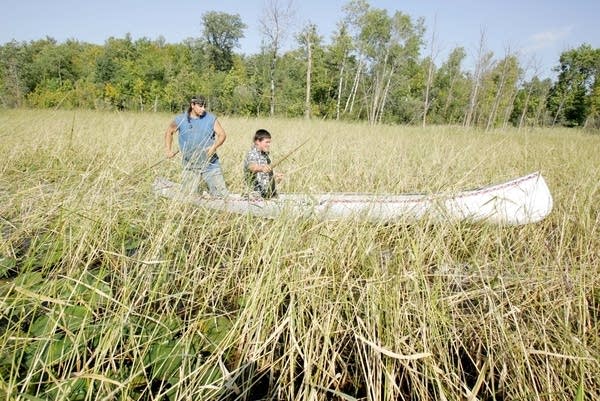Wild rice measure tucked into Minn. budget deal
Go Deeper.
Create an account or log in to save stories.
Like this?
Thanks for liking this story! We have added it to a list of your favorite stories.

By STEVE KARNOWSKI
Associated Press
MINNEAPOLIS - Scientists will launch a $1.5 million study into whether a water quality standard meant to protect wild rice beds needs updating under the budget deal that ended Minnesota's government shutdown. But some environmentalists say it sets a bad precedent because it means the state won't enforce the existing standard until the study is done and new regulations are issued.
The impetus came from copper-nickel mining supporters who say limits on sulfate discharges should be based on fresh science - rather than research from the 1940s.
Ojibwe bands have kept a close eye on the fight because they consider wild rice sacred.
Lawmakers who helped craft the provision say it should satisfy most groups with a stake in the issue. However, several environmental groups say they don't consider it a compromise.
Turn Up Your Support
MPR News helps you turn down the noise and build shared understanding. Turn up your support for this public resource and keep trusted journalism accessible to all.
Dear reader,
Political debates with family or friends can get heated. But what if there was a way to handle them better?
You can learn how to have civil political conversations with our new e-book!
Download our free e-book, Talking Sense: Have Hard Political Conversations, Better, and learn how to talk without the tension.





